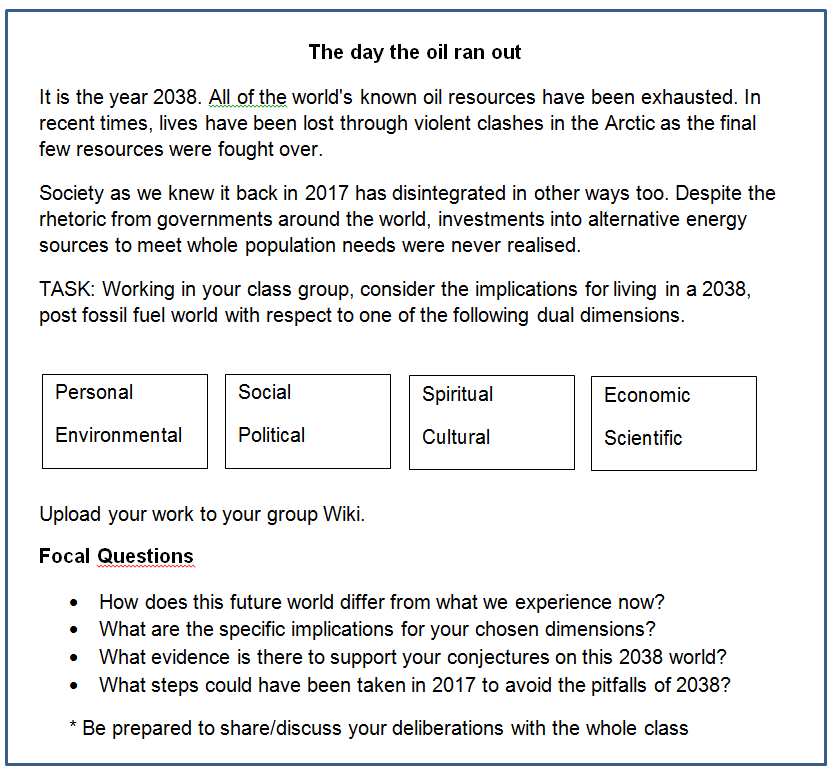Do you employ scenario-based approaches to teaching and learning which utilise digital technology in their implementation?
The definition of scenario-based approaches being used is: any mechanism whereby students are presented with a scenario – this could be in the form of a case study, narrative, problem or similar – and are required to complete particular tasks in response to the scenario.
This can be a simple as presenting a text-based scenario/case study:
for example [borrowed and adapted from: Errington, Ed (2008) Exploring real-world scenarios as vehicles for authentic learning. International Journal of Interdisciplinary Social Sciences, 3 (5). pp. 1-6]

to the use of interactive online resources: for example,
http://aural-initiative.com/scenarios/EmergencyRoom/EmergencyRoom.html
“Scenario-based learning is a methodology which aims to promote deep learning and awareness by involving participants in realistic situations where they are forced to consider a wide range of factors, make decisions and reflect on the outcomes and what they have learned from this.”
[http://cedma-europe.org/newsletter%20articles/Inside%20Learning%20Technologies%20and%20Skills/Scenario-Based%20Learning%20%28May%2014%29.pdf]
Scenario-based learning includes approaches such as: problem-based learning (PBL), case-based learning, gamification, storification, serious games, discovery learning, collaborative learning, experiential learning.
Dr Rob Weale is scoping the potential to launch an action research project to explore the use of scenario-based approaches for learning in the Faculty of Health and Life Sciences (HLS), which utilise technology. The aims of the project would be to:
- Identify scenario-based practices across the Faculty of Health and Life Sciences
- Investigate and evaluate the educational effectiveness of the approaches
- Investigate and evaluate the practical aspects of developing and implementing such approaches from the perspective of the teacher
- Investigate and evaluate the educational potential, and practical aspects of students developing scenario-based learning resources
- Share and publicise the findings – both internally and externally
If you use or have used scenario-based approaches in your teaching, please contact Rob. [Rweale@dmu.ac.uk]